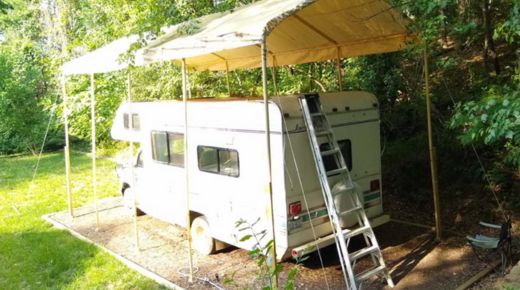Planning a family road trip is an exciting adventure that requires careful consideration of transportation options. Whether you’re heading to the mountains, the beach, or a national park, choosing the right vehicle can make or break your experience. Below are some transport options to consider, including tips for purchasing a used car and maintaining your RV.
1. Buying a Used Car Within Your Budget
One of the most budget-friendly options for family road trips is to buy used car. A pre-owned vehicle can save you a significant amount of money compared to purchasing new. Here are some tips for making a wise investment:
Research and Set a Budget
Before you start shopping, determine how much you can afford. Factor in the cost of insurance, registration, and potential repairs. Set a realistic budget that includes these expenses.
Check Vehicle History Reports
When buying a used car, always check the vehicle’s history report. Services like Carfax and AutoCheck provide essential information about previous accidents, service records, and ownership history. This information can help you avoid cars with hidden issues.
Consider Fuel Efficiency
On a long road trip, fuel efficiency can significantly impact your overall budget. Look for vehicles with good gas mileage to keep fuel costs down.
Inspect the Car Thoroughly
If you’re buying from a dealer or a private seller, make sure to inspect the car carefully. Look for any signs of wear and tear, and don’t hesitate to ask for a mechanic’s opinion. A thorough inspection can save you from unexpected expenses down the road.
2. Getting Your RV Repaired
For families who love the freedom of hitting the open road, an RV can be a fantastic choice. However, regular maintenance is essential to ensure a smooth journey. One key aspect of RV maintenance is the roof.
Recreational Vehicle Roof Repair
RV roofs are exposed to various elements, making them prone to damage over time. Whether you have a rubber, fiberglass, or metal roof, addressing any issues promptly is crucial. Here are some considerations for Recreational Vehicle Roof Repair:
- Inspect Regularly: Make it a habit to check your RV roof for signs of wear, such as cracks, tears, or bubbling. Regular inspections can catch issues early, preventing more significant problems down the line.
- Choose the Right Repair Materials: Depending on your roof type, you may need specific sealants or materials. For example, rubber roofs require specialized repair kits, while metal roofs may need metal patches.
- Hire Professionals: If the damage is extensive or beyond your expertise, consider hiring a professional. Skilled technicians can provide quality repairs, ensuring your RV remains roadworthy and leak-free.
- Preventive Maintenance: Regularly cleaning your RV roof and applying protective coatings can extend its lifespan. This proactive approach reduces the need for costly repairs in the future.
3. Renting a Van for Larger Families
If your family is larger or you’re traveling with friends, renting a van could be a great option. Vans offer spacious seating and cargo capacity, making them ideal for extended trips.
Benefits of Renting a Van
- Convenience: Renting a van can be a hassle-free experience. Most rental agencies offer various options, including pickup trucks and passenger vans.
- Flexibility: If you’re not ready to commit to purchasing a vehicle, renting provides flexibility. You can choose a vehicle that suits your trip and return it afterward.
- Insurance Coverage: Many rental companies offer insurance coverage, which can give you peace of mind during your travels.
4. Consider Carpooling for Cost Efficiency
Carpooling is another option worth considering, especially if you have friends or family members with similar travel plans. By sharing rides, you can split fuel and toll costs, making the trip more affordable for everyone involved.
Benefits of Carpooling
- Environmental Impact: Sharing a ride can reduce the carbon footprint of your trip, making it a more environmentally friendly choice.
- Social Interaction: Traveling with others can make the journey more enjoyable. Share stories, games, and snacks, creating memories long before you reach your destination.
5. Exploring Public Transportation Options
Depending on your destination, public transportation can be a viable option. Trains and buses can take you to major cities and attractions without the hassle of driving.
Advantages of Public Transport
- Cost-Effective: Public transportation can often be cheaper than maintaining a vehicle for a road trip, especially if you’re traveling to urban areas.
- Reduced Stress: You can relax and enjoy the scenery without worrying about navigating unfamiliar roads or dealing with traffic.
Conclusion
Choosing the right transport option for your family road trip is crucial for a successful journey. Whether you decide to buy a used car, maintain your RV, rent a van, consider carpooling, or explore public transportation, each option has its advantages. By evaluating your needs, budget, and preferences, you can select the best mode of transportation to ensure your family enjoys a memorable road trip experience. Happy travels!

